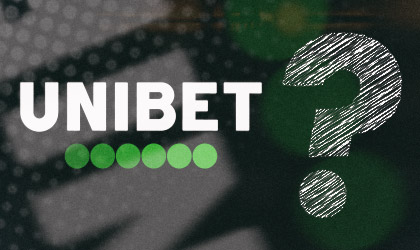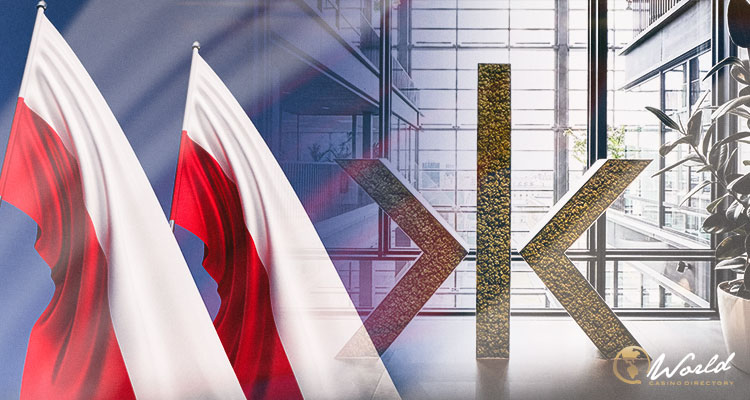A scandal rocks the international gambling world as Unibet, one of the top names in gaming, faces potential fines for allegedly targeting Polish customers.
Unibet, most significantly known as the sports betting arm of Kindred Group, was reported by a Polish operator for breaching the rules of good conduct and licensing agreements. The operator accuses the conglomerate of specifically advertising to Polish gamers, despite having no license to operate in Poland.
The penalty could be as high as $6.3 million, having far-reaching effects for the company and its subsidiaries.
The accusations arise from the notably strict gambling laws present in Poland. The Polish government has historically resisted all attempts to relax casino regulations in the (politically conservative) country. This applies not only to traditional, in-person casinos, but also to online gambling sites.
Only one operator in the country is allowed to offer casino games: the state-owned Totalizator Sportowy (STS).
Because of these laws, there’s more flexibility in sports betting than in casinos. Polish players can place bets on most sports, including football, cricket, horseracing, and even table tennis and badminton. Esports have started to offer even greater opportunities for those interested in dipping their toe into the exciting world of gambling—their rise has led to more interest in gambling than ever before.
Live-dealer games are also just starting to come onto the Polish market: as TVBET continues to expand its presence, developers start to find loopholes in the notorious Polish gambling restrictions.
What Accusations does Unibet Face?
To understand the accusations levied against Unibet, it’s important to understand that Unibet officially and voluntarily withdrew from the market in 2017, following complicated compliance with the Polish 2009 Act of 19 November on Gambling Games, also known as the Polish Gambling Law.
 The law states that online sports betting platforms must have a physical presence in the country and furthermore must log an up-to-date database of registered players with the Ministry of Finance.
The law states that online sports betting platforms must have a physical presence in the country and furthermore must log an up-to-date database of registered players with the Ministry of Finance.
These restrictions resulted in the suspension of many international operators, who left the country after being unable or unwilling to meet these standards.
However, STS Gaming, the largest gambling company in Poland, has now stated in no uncertain terms that Unibet has continued to illegally target Polish players with its products. They say that this has been happening under the radar for several years—possibly since Unibet’s departure nearly six years ago.
STS alleges that Unibet has continued offering Polish players opportunities to gamble without permission or approval from the Ministry of Finance.
They further allege that this was explicit, an example being the blatant display of Unibet logos on foreign football uniforms during matches in Poland. They suggest that this constitutes advertisement to Polish gamers—far from innocent sponsorship.
In addition, STS alleges that Unibet’s actions have been distinctly underhanded, attempting to circumvent a block by the Ministry of Finance. Unibet is accused of changing its domain name to avoid a ban.
The final accusation is that Kindred (under Unibet) does not provide proper protection for Polish citizens, including data protection and gambling addiction support and awareness.
While Kindred does operate legally in neighboring countries, it’s not the first time they’ve faced criticism: the accusations from STS come on the heels of Swedish regulators issuing a warning and fine to Kindred in November 2022.
The Lawsuit
The lawsuit against Kindred Group is official: STS board member Zdzisław Kostrubała claims that Unibet didn’t, in fact, exit the market as originally agreed in 2017.
Though Kindred ended its Polish license as a result of the 12% gambling tax on turnover imposed by the government, Kostrubała claims that Unibet has continued to accept bets from Polish citizens—going so far as to maintain a site in Polish.
With new Unibet offerings, including King of Flips continuing accessibility to Polish audiences, STS claims that the Polish-language site is enough evidence that they’re in violation of the law.
This comes with significant consequences: the penalty for promoting their content to Polish customers alone is a fine up to $6.3 million, with a further possible fine of $670k for offering and promoting gambling in Poland without approval from the appropriate parties or a license.
As a result, the District Court of Warsaw has now expressly prohibited Unibet from marketing services or offering its content within Poland and to Polish players, current and potential. In addition, the Court also appealed to all legal companies to oppose the offshore brand.
For his part, Kostrubała responded positively to the news, praising the court’s decision and stating his hopes that Unibet’s compliance will result in the ability to drop the case and not pursue further legal action.
Is Poland in Breach of European Union Competition Rights?
While we wait to see whether Unibet will step back and abide by the Court’s decision, another question is raised: is Poland in breach of European Union Competition Rights?
Many operators claim that they are.
As the rights are extremely and notoriously restrictive, foreign operators claim that the Polish government favors local organizations over international ones. It’s not only the parties involved, either: the European commission has requested that Poland review its approach to online gambling and its regulations.
The controversy seems especially based around the political tensions between socially conservative Poland and the generally more progressive European Union, of which Poland is a member. This raises more serious, abstract queries.
How far should local laws be regulated by a higher governing authority? Where is the line between social and political conservatism? These questions are at the forefront of this controversy: a debate sure to result in consequences far more reaching than one betting organization’s ability to market and capture Polish players.



